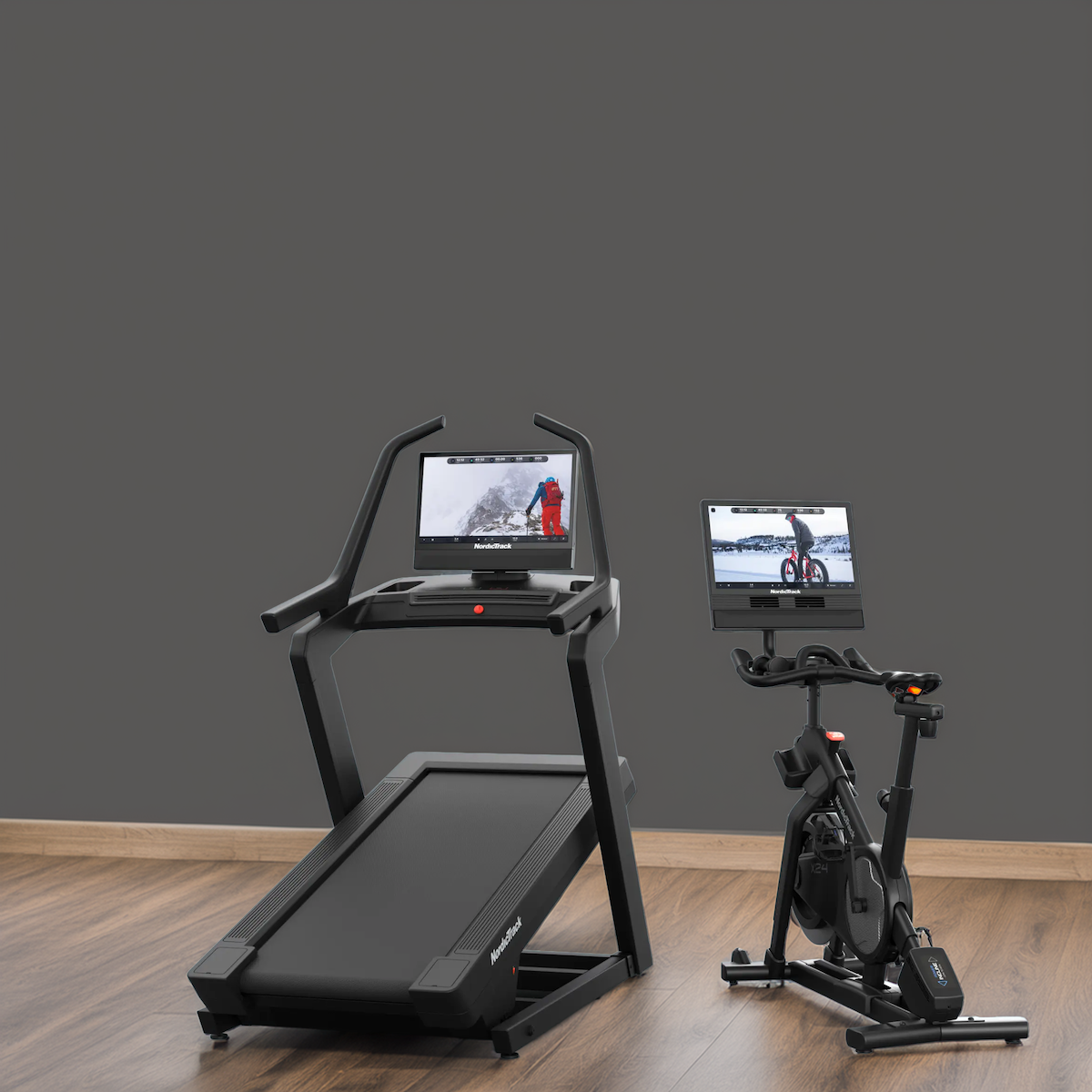
The Biggest Loser: How iFIT shed 70% of its freight costs.
iFIT, the maker of NordicTrack exercise equipment, partnered with Sharetown to overhaul its costly and inefficient returns process—cutting freight costs by 70%, closing three warehouses, and reducing customer complaints to near zero.
$200
Per Unit Savings
99%
Less Support
5x
Faster Returns

When Ron Stimson, Director of Reverse Logistics & Returns for iFIT, first encountered Sharetown representatives at an industry conference, he initially walked away. Little did he know that this chance encounter would eventually transform his company's entire approach to returns—saving millions of dollars and dramatically improving customer satisfaction.
"I ignored them the first year," Stimson candidly admits about Sharetown's team. "Then the next year we met in the airport coming back to Salt Lake, and we stopped and talked for a few minutes, and I was like, 'I think this is a really good fit.'"
That airport meeting initiated a partnership that would revolutionize iFIT's returns process for its exercise equipment. With 36 years at the company and having overseen everything from manufacturing to distribution, Stimson had witnessed the evolution of iFIT's reverse logistics firsthand.
iFIT's previous returns model was fraught with inefficiencies. Initially, all returned fitness equipment from across the country was shipped back to Ogden, Utah—a logistical nightmare that proved unsustainable. Stimson expanded to three reverse logistics centers in Utah, Georgia, and California to reduce freight costs, but it still wasn't enough.
The problems were multiple: high freight costs averaging $250-$280 per unit, extensive warehouse overhead, customer refunds delayed 30-90 days, and mounting customer complaints.
"There were a lot of upset customers. A lot of calls back into our billing and returns—it wasn't pretty," Stimson recalls.
After initial hesitation, Stimson decided to test Sharetown with a handful of returns in a couple of locations. The results were immediate and impressive.
"We tendered five or six different returns to you guys, and you called the customer, picked it up, all done within 10 days," he explains. "So I called back and I said, 'Hey, I know that you started to crawl, but I want you to run.'"
Sharetown's model—picking up unwanted fitness equipment directly from customers' homes and reselling it locally—eliminated the need for costly warehouses and shipping. The impact was transformative:
"I can recall one specific complaint," Stimson emphasizes. "That was it. Out of all the returns that have gone through Sharetown in 3 years."
While Stimson was careful not to reveal exact figures, he offered a compelling comparison: "Let's say we were spending a hundred million dollars [on returns], today we'd be spending 30 million."
This dramatic cost reduction came not just from eliminating freight and warehouse expenses, but also from improved customer satisfaction that reduced return rates from 5% to 2%—a significant savings for a company of iFIT's size.
Unlike bulk liquidation services that might damage iFIT's brand reputation, Sharetown's careful handling and local resale model protects the company's image. As Stimson notes, "Brand integrity is number one. Making sure that when they get the product, it is usable, it's workable, and it's what they expected."
This approach creates a pathway for future sales: "That experience in the secondhand market makes them come back to iFIT."
Stimson believes the Sharetown model represents the future of reverse logistics, especially for large, heavy items like fitness equipment.
"I don't think anyone out there does what Sharetown does," he states. "The industry is behind the game when it comes to reverse logistics and what Sharetown and iFIT are doing."
He contrasts Sharetown's approach with traditional liquidation services: "Everybody thinks that reselling products in bulk is the answer... I can buy a truckload of treadmills from Amazon for $500 and there's really no recoup, there's no recovery in that. It is like 1% to 2%."
For iFIT, Sharetown has transformed customer satisfaction from "maybe 30-40% positivity" to "in the 90s." This improvement extends beyond just the returns process to impact the company's overall reputation and future sales potential.
As Stimson concludes, "If you have a good experience with a company that you bought something from, then six months down the road you're going to look for something to buy, you're going to go back to that same company."
What started with a chance encounter in an airport has evolved into a partnership that has fundamentally transformed how iFIT handles returns—proving that in the world of reverse logistics, sometimes the best path forward is a completely new direction.